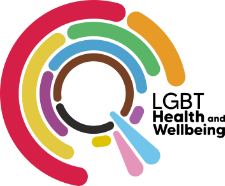What is transgender?
Download Booklet
A booklet to support people with learning disabilities who are exploring their gender is now available. LGBT Health and Wellbeing, as part of the LGBT Learning Disability project, brought together a team of practitioners to create this unique resource. Contributors included staff from NHS Lothian, City of Edinburgh Council, NHS Forth Valley, and the Equality Network.
Annette Rae, Edinburgh Service Manager with LGBT Health and Wellbeing,
explained that:
Research findings and direct experiences shared by people with learning disabilities who access our Transgender Support Programme, strongly indicate that people with learning disabilities can often be held back from understanding and expressing their transgender status. Additional barriers include prejudice and discrimination in the wider society, as well as from staff, family and friends that can often result in greater instances of depression, anxiety, loneliness, and even self-harm and attempted suicide. Key messages from ‘What is Transgender’ is that it’s perfectly acceptable to be transgender and positive to explore your gender. The booklet provides some options about how people might want to express their gender, some suggested next steps, and encourages people to seek support from and talk with others who they trust.
Tracy Lazenby-Paterson, Speech & Language Therapist with NHS Lothian,
commented that:
People with learning disabilities commonly have cognitive, language and memory problems that make it difficult for them to understand and express information effectively, particularly abstract and complex issues. They can often better understand and retain information when it is simple, straightforward, concrete, and supported with visual cues. The literature supports that transgender people with learning disabilities generally identify with concrete aspects associated with gender, such as specific behaviours and appearance, rather than with the more complex, multi-dimensional gender identity model.
When we translate complex and abstract concepts into a small amount of simplified and concrete information, inevitably a great deal of fine detail will be omitted. However, too much language and fine detail can easily overload the individual with learning disabilities, such that they may fail to understand or retain any of the information provided. ‘What is Transgender’ presents information in a format that people with learning disabilities can best understand and retain, and serves as a starting point from which they can further explore the many issues pertaining to transgender identity
For more information and comments about What is Transgender please contact Annette Rae at annette@lgbthealth.org.uk


